Actualités
Newsletter bayésienne
Depuis sa création, notre groupe envoie une infolettre à ses abonnés pour faire part de nos actualités, comme par exemple les manifestations et conférences scientifiques liées à la statistique bayésienne.
Pour vous abonner à la newsletter bayésienne et recevoir dans votre boîte aux lettres les dernières actualités, vous pouvez suivre ce lien. Vous pouvez également vous abonner aux infolettres de la SFdS et choisir notre infolettre dans votre compte.
Séminaire périodique "All About That Bayes"
All About that Bayes est un séminaire périodique axé sur la modélisation et la statistique (computationnelle) bayésienne. Organisé (3 à 4 fois par an) sous forme d'après-midi thématiques par notre groupe, on y explore des solutions à des problèmes de modélisation et d'apprentissage complexes issus d'une large gamme d'applications, telles que l'écologie, la génétique des populations, le traitement du signal ou encore l'optimisation énergétique, pour n'en citer que quelques-unes. Le programme complet est disponible sur All About that Bayes. Pour recevoir toutes les informations concernant ce séminaire, n'oubliez pas de vous inscrire à l'info lettre du groupe ou à celle dédiée au séminaire : s'abonner.
Événements à venir
• Journée APPLIBUGS
- Juin 2026 Informations à venir
• Séminaire "All About that Bayes"
- 13 février 2026 – 14h-17h à l’Institut Henri Poincaré Paris – Thème (à confirmer) : modèles de mélange bayésiens - Orateurs/Oratrices : à venir
Événements passés
• Séminaires "All About that Bayes"
- 7 novembre 2025 ; IHP (Paris) – Thème : Challenges in High Dimensional Bayesian Modelling
3 orateurs invités :
Julyan Arbel (Inria, Université Grenoble Alpes) - Bayesian deep learning, overview and challenges
Marion Naveau (Institut Agro Rennes-Angers) - High-dimensional variable selection in non-linear mixed effects models. Application in plant breeding
Nicolas Chopin (ENSAE, institut Polytechnique de Paris) - Saddlepoint Monte Carlo and its Application to Exact Ecological Inference
• Autumn School on recent advances in Machine Learning
- 16 Novembre 2025 - 21 Novembre 2025 . Centre Paul Langevin (Aussois).




















